
Avelumab in combination with axitinib was found effective and safe as frontline treatment for advanced RCC in real-world findings.

Avelumab in combination with axitinib was found effective and safe as frontline treatment for advanced RCC in real-world findings.

Patient-reported outcomes were consistent between patients with RCC using tivozanib/nivolumab and tivozanib monotherapy according to study findings.

Katy Beckermann, MD, PhD, explained that oncology nurses and APPs should be ready to administer and explain dose modifications for patients with RCC.
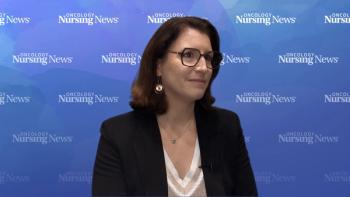
According to Laurence Albiges, MD, PhD, treatment of RCC with cabozantinib, nivolumab, and ipilimumab can cause potentially serious toxicities that should be closely monitored.

Proactive onco-coaching did not improve QOL but was associated with improved OS in patients with metastatic renal cell carcinoma receiving TKIs and ICIs.
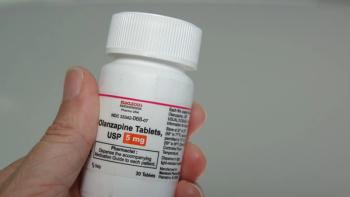
Patients treated with tyrosine kinase inhibitors received olanzapine to address adverse effects including nausea/vomiting, anorexia, insomnia, and weight loss.
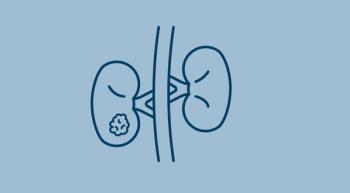
New results uphold previous findings regarding the efficacy of cabozantinib, nivolumab, and ipilumumab arm for advanced renal cell carcinoma.
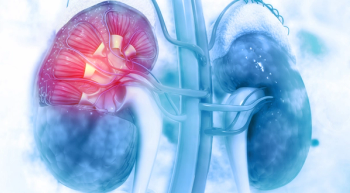
Patients with advanced RCC who were treated with nivolumab plus cabozantinib had a median PFS of 16.4 months compared with 8.3 months from sunitinib alone.
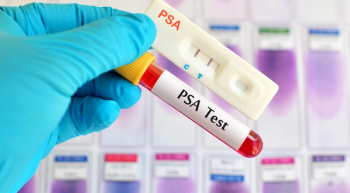
Men with intermediate-risk prostate cancer and high PSA levels before HIFU treatment had a greater risk of both overall recurrence and treatment failure.

Enfortumab vedotin alone and in combination with pembrolizumab showed promise in patients with upper tract urothelial carcinoma, particularly those ineligible for standard chemotherapy.

Real-world data demonstrate significant outcome improvements with enfortumab vedotin in patients with unresectable or metastatic urothelial carcinoma.

Patients with metastatic hormone-sensitive prostate cancer experienced increase rPFS and other efficacy end points with darolutamide plus ADT.

Improved progression-free survival in metastatic urothelial carcinoma was observed in patients experiencing neuropathy, skin rash, and hyperglycemia following enfortumab vedotin.
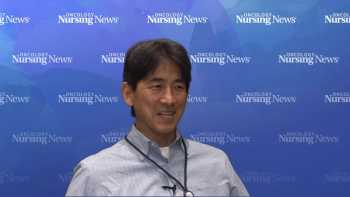
Increase in QOL and decrease in sexual function are among the benefits and risks, respectively, of adding SADT to EBRT for intermediate-risk prostate cancer.

Findings also suggested that an up-front dose reduction of enfortumab vedotin may benefit older patients with urothelial carcinoma.

MyCareGorithm was met with high approval from patients, companions, and physicians, with all 3 groups reporting they’d recommend the tool to other patients.

While lower relative dose intensity of docetaxel was associated with higher rates of G-CSF use and more adverse events, discontinuation rates were low across all groups.

Patients with mCRPC taking LuPSMA had a median OS of 34 months vs 26 months with enzalutamide alone.

With delays in biomarker testing and treatment for metastatic castration-resistant prostate cancer, continued education is needed to address these gaps.
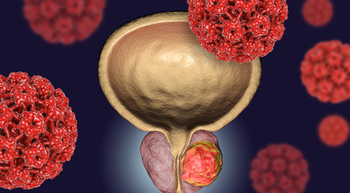
Patients with HRR-deficient metastatic castration-resistant prostate cancer saw a 14-month boost in OS and a 38% lower risk of death with talazoparib plus enzalutamide.

Patients with metastatic urothelial cancer treated with frontline maintenance therapy with avelumab following platinum-based chemotherapy in the real-world setting had similar outcomes as observed in the JAVELIN Bladder 100 trial.

Patients with BRCA-, ATM- and CDK12-mutated mCRPC treated with frontline olaparib plus abiraterone acetate experienced delays in disease progression and improved outcomes.

Subsequent therapies in patients with metastatic hormone-sensitive prostate cancer who were censored from primary overall survival follow-up from the ARASENS trial, according to a post hoc sensitivity analysis, confirmed the overall survival benefit derived from darolutamide plus androgen deprivation therapy and docetaxel.

After radical prostatectomy, patients with prostate cancer treated with abiraterone acetate plus prednisone and apalutamide had improved outcomes without a significant impact on their health-related quality of life.
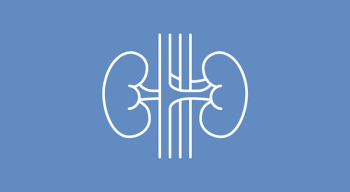
Treatment with belzutifan for advanced/metastatic clear cell renal cell carcinoma delayed worsening symptoms and improved quality of life.
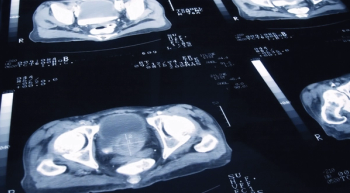
Researchers did not observe any grade 3 or 4 adverse events with darolutamide with androgen deprivation therapy for 6 months followed by radical prostatectomy in patients with locally advanced prostate cancer.

All patients enrolled in the EV-302 trial with previously untreated, locally advanced, or metastatic urothelial carcinoma obtained a survival benefit with enfortumab vedotin-ejfv plus pembrolizumab.

Cabozantinib plus atezolizumab may be a new treatment option for patients with metastatic castration-resistant prostate cancer whose disease progressed on novel hormonal therapy.

Patients with cisplatin-ineligible urothelial carcinoma treated with frontline pembrolizumab plus cabozantinib obtained responses with a manageable toxicity profile.

Patients with high-risk prostate cancer treated with a higher dose of radiation therapy and long-term androgen deprivation therapy improved progression-free, cancer-specific, and overall survival compared with the standard dose of radiation.